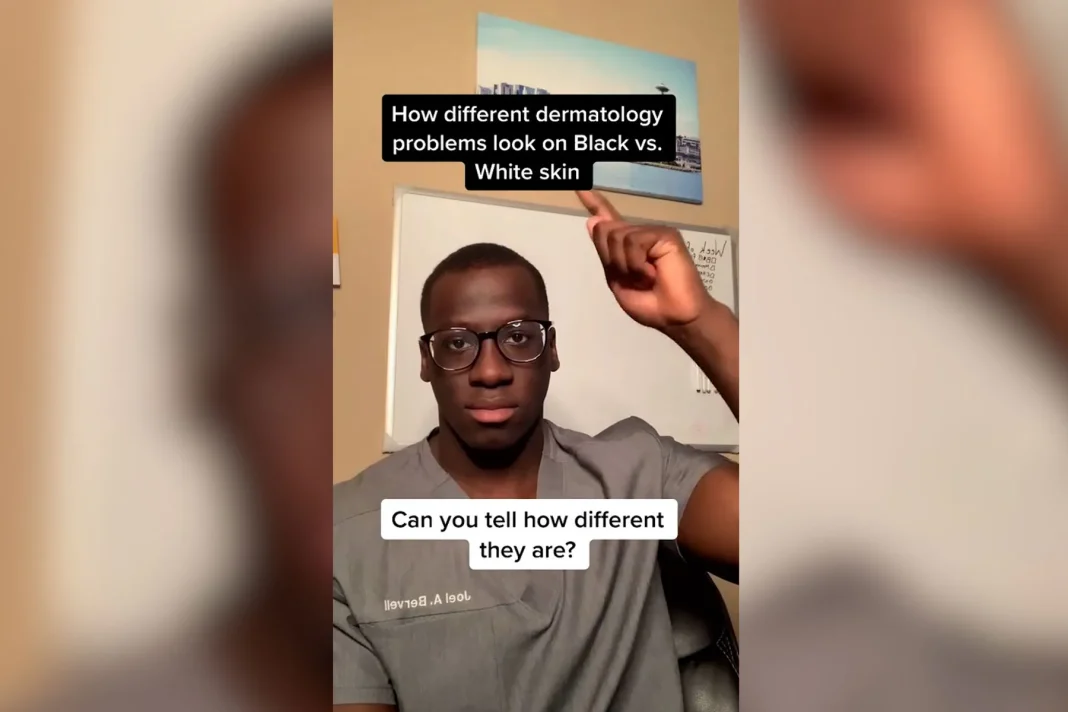April 23, 2024 – It’s becoming more of a “when” then an “if” TikTok will be banned in the United States, which would leave the 170 million Americans who use the social media app to find another option. Gone, too, would be the growing community of health care professionals who use the platform to share legitimate health information and advice to their followers.
The U.S. Senate is expected to vote on legislation this week that would give ByteDance, TikTok’s Chinese owners, up to 1 year to sell the company or be outlawed in the U.S. President Joe Biden has indicated he would sign the bill into law.
If TikTok goes dark, it could render unavailable the work of those who have made the site a go-to for expert- and user-generated videos on topics that cover the spectrum of consumer health.
TikTok “has had positive effects on public awareness and allowed for creative approaches to get this information to less reachable audiences — which is a triumph,” said Adam Friedman, MD, professor and chair of dermatology at George Washington School of Medicine and Health Sciences.
And in the absence of good, accurate information, many worry purveyors of misinformation could fill the gaps.
Switch to Other Social Media?
“Young people will probably find new platforms to fill the gap if TikTok can no longer operate in the U.S. But it’s not clear how they’ll do that,” said Laura Schwab Reese, PhD, associate professor of public health at Purdue University in West Lafayette, IN, who has studied TikTok’s effect on reproductive health information, sexual assault counseling, and more.
“In my work, we’ve shown that the TikTok videos with the most views in hashtags related to sexual/reproductive health and sexual violence generally have high-quality, credible, and engaging information,” Schwab Reese said.
Most of the content currently on TikTok will likely move onto Instagram Reels, predicted Claire Wardle, PhD, founder and co-director of the Information Futures Lab at Brown University School of Public Health in Providence, RI. YouTube is also often mentioned as a possible new home for TikTok users.
“I wish there were other places where young people went for accurate information, but currently that’s not the case.” She added, “Young people much prefer sites that support user-generated content.”
A benefit that could be lost with the demise of TikTok is users “normalizing” medical and health conditions for others. “TikTok is a place where people share firsthand experiences, and that is helping to destigmatize medical and health issues,” Wardle said. “So that would be a loss.”
Supporting Positive Mental Health
TikTok “does a good job of surfacing people’s lived experiences and different perspectives. We’ve seen important conversations about mental health take place on the site,” Wardle said.
And it’s not just users. For example, Cleveland Clinic partnered with the National Institute of Mental Health in October 2023 to share credible mental health information on TikTok. Posts include problematic signs of depression, how people with high-functioning anxiety often don’t show external signs, and the difference between migraines and other headaches.
“Mental health has been a growing issue, and we know there has been an increase in online searches around this area, especially among young people,” Leo Pozuelo, MD, chairman of psychology and psychiatry at Cleveland Clinic, said in a TikTok statement announcing the arrangement. “Therefore, it’s important that people have access to credible health information on a variety of platforms, including TikTok.”
“We encourage anyone who is struggling to seek out information from a trusted source and to not be afraid to get help from a health care provider,” Pozuelo said.
Large Numbers Could Be Shut Out
If most TikTok users are left searching for a new platform, it may be challenging for content creators of legitimate health and medical information to predict which will become most popular, Schwab Reese said. As a result, “there may be a lag between user adoption and access to high-quality health information.”
If TikTok does go offline, it could lead to a mass migration elsewhere online.
The number of Americans who get their medical and health information from TikTok now number in the millions. For example, 2.2 million people follow family doctor Mikhail Varshavski, DO, aka “Dr. Mike” and 8.4 million follow plastic surgeon Anthony Youn, MD.
Misinformation Won’t Be Missed
One thing that wouldn’t be mourned with the demise of TikTok, although it’s likely to resurface elsewhere, is health and medical misinformation.
There are some “excellent doctors and nurses doing amazing work on the platform, creating videos and comments on other videos,” Wardle said. “But we have to acknowledge there is also a lot of content on there that has not been fact checked by medical professionals.”
“We’ve seen dangerous misinformation around topics such as oral contraception, skin care, and respiratory syncytial virus (RSV),” Wardle added.
Also, because of how TikTok’s algorithm works, “once users interact with content containing misinformation, they see more of it,” Schwab Reese said.
Friedman agreed that misinformation continues to plague TikTok. While many of his dermatology physician colleagues use TikTok to share valuable information, “I feel the harm from misinformation outweighs the good so many of my colleagues have accomplished.”
He suggested consumers turn to other sources of reputable information like the American Academy of Dermatology Association website for a wide range of guidance on skin conditions and skin health. He also recommended sites from organizations devoted to specific conditions – like the National Eczema Association, the National Psoriasis Foundation, or HSConnect for people looking to learn more about hidradenitis suppurativa, for example.







